
Philipp Haueis
@phaueis.bsky.social
Philosopher of science working on concepts, experiments, multiscale modeling and societal issues in neuroscience and climate research.
Currently assistant prof @ Bielefeld University, Germany
website: philipp-haueis.de
Currently assistant prof @ Bielefeld University, Germany
website: philipp-haueis.de
This is why it’s fun to teach on your research: today we discussed a chapter of my book on patchwork concepts in science. The students asked if we try can build a patchwork, and so we used the case of “gene“ from the previous session, which I hadn’t analyzed explicitly before!
#philsci
#philsci

October 29, 2025 at 8:36 PM
This is why it’s fun to teach on your research: today we discussed a chapter of my book on patchwork concepts in science. The students asked if we try can build a patchwork, and so we used the case of “gene“ from the previous session, which I hadn’t analyzed explicitly before!
#philsci
#philsci
Finally, Patrick McGivern pronouncing the Metabolic Turn in philosophy of cognition, with work on the role of metabolism for non-neural cognition, such as bacteria chemotaxis (4/4)
Thanks to all speakers and participants for the great Q&A!
#philsky
#neuroskyence
#cognition
#metabolism
Thanks to all speakers and participants for the great Q&A!
#philsky
#neuroskyence
#cognition
#metabolism
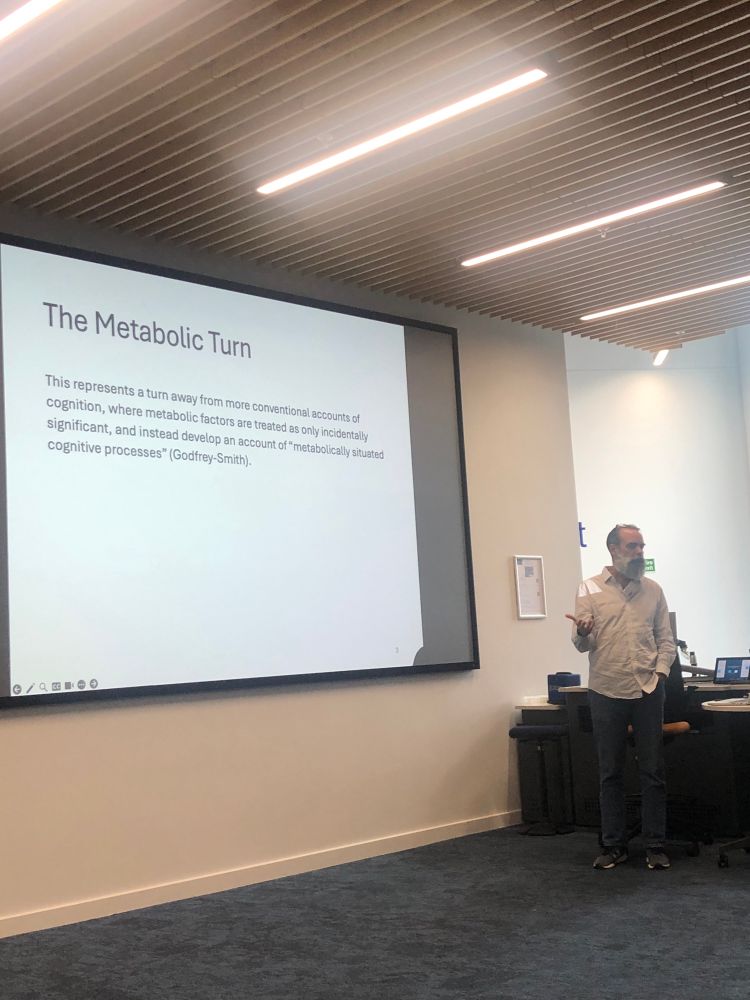
July 16, 2025 at 6:37 PM
Finally, Patrick McGivern pronouncing the Metabolic Turn in philosophy of cognition, with work on the role of metabolism for non-neural cognition, such as bacteria chemotaxis (4/4)
Thanks to all speakers and participants for the great Q&A!
#philsky
#neuroskyence
#cognition
#metabolism
Thanks to all speakers and participants for the great Q&A!
#philsky
#neuroskyence
#cognition
#metabolism
Turning to evolution, Matthew Sims (in joint work w Marta Halina) explained how predictive brain models may have evolved from corollary discharge, which itself resulted from the need to distinguish external input from sensory feedback once nervous systems relied on sensorimotor integration (3/4)
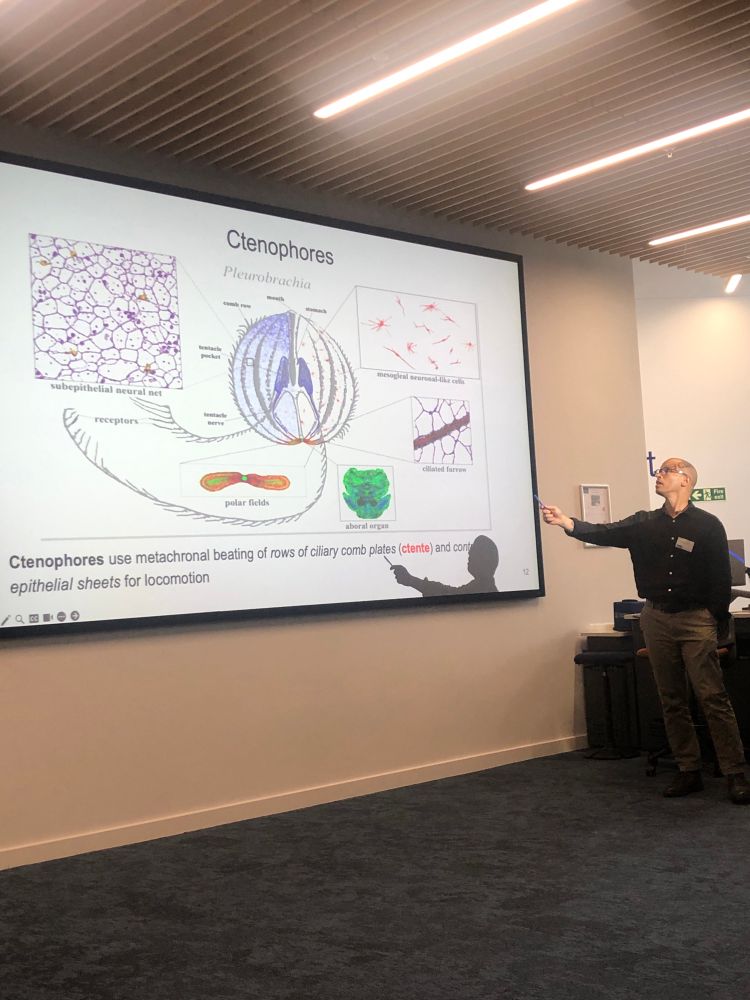
July 16, 2025 at 6:37 PM
Turning to evolution, Matthew Sims (in joint work w Marta Halina) explained how predictive brain models may have evolved from corollary discharge, which itself resulted from the need to distinguish external input from sensory feedback once nervous systems relied on sensorimotor integration (3/4)
Next was a talk by @jtheriault.bsky.social presenting a metabolic model of „activity“ in neuroimaging, suggesting that stimulus elicited BOLD responses Track prediction error processing in the brain, but not baseline metabolic load related to processing predictions (2/4)
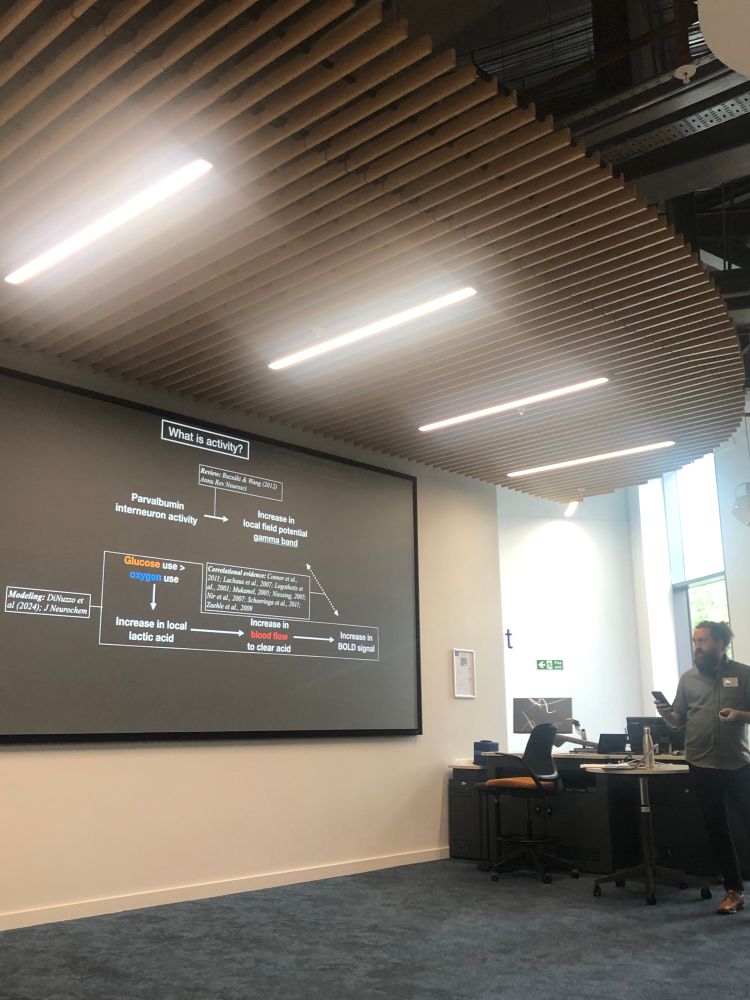
July 16, 2025 at 6:37 PM
Next was a talk by @jtheriault.bsky.social presenting a metabolic model of „activity“ in neuroimaging, suggesting that stimulus elicited BOLD responses Track prediction error processing in the brain, but not baseline metabolic load related to processing predictions (2/4)
Had a great session on the relation between metabolism and cognition at BSPS Glasgow, organized by @davidcolaco.bsky.social . We presented joint work on using metabolism to constrain and generate cognitive models (1/2)
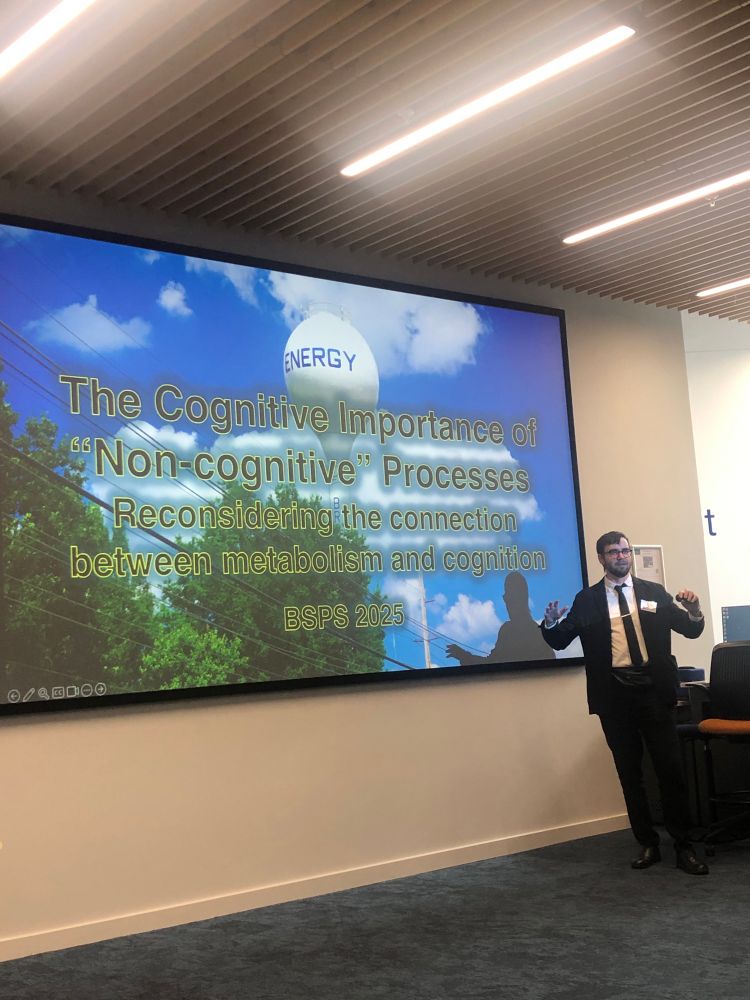
July 16, 2025 at 6:37 PM
Had a great session on the relation between metabolism and cognition at BSPS Glasgow, organized by @davidcolaco.bsky.social . We presented joint work on using metabolism to constrain and generate cognitive models (1/2)
As the semester days get hot, our Phil neuroscience readings are hot off the press: today we talked about Dan Burnston’s latest: epistemic reduction of ‚decision‘ to accumulate to bound models in neuroscience. We discussed which aspects of decision can or cannot be reduced by these models (1/2)
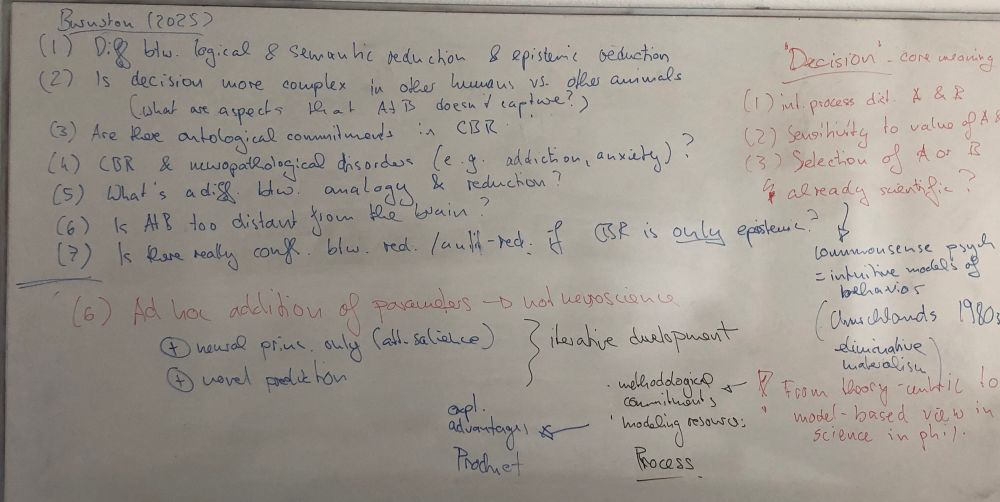
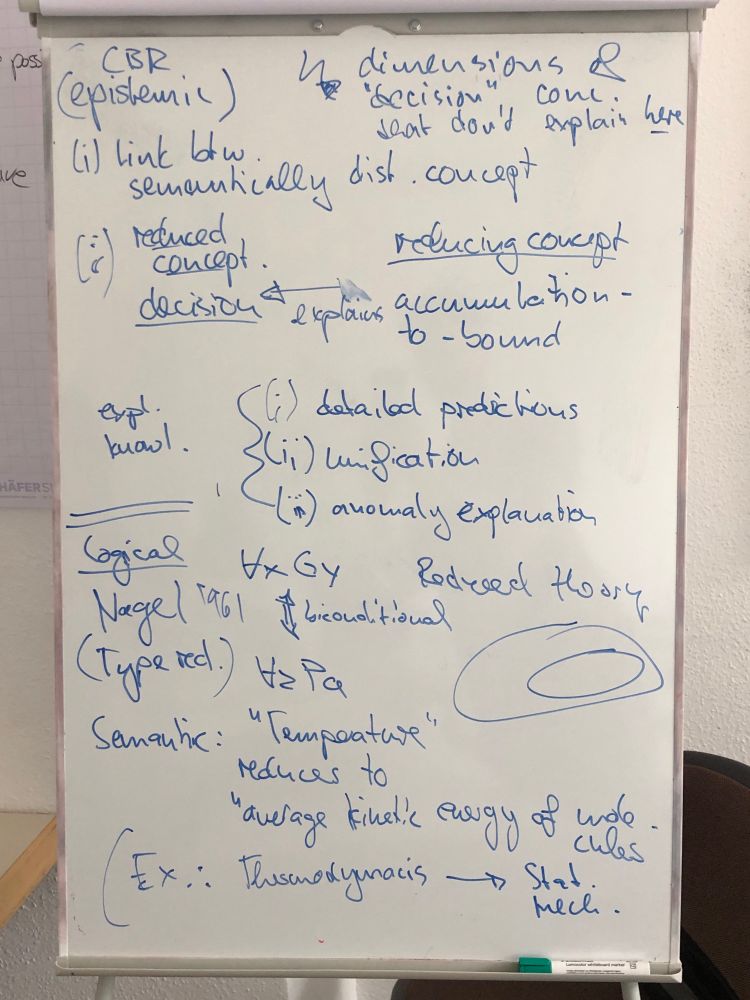
June 18, 2025 at 8:32 PM
As the semester days get hot, our Phil neuroscience readings are hot off the press: today we talked about Dan Burnston’s latest: epistemic reduction of ‚decision‘ to accumulate to bound models in neuroscience. We discussed which aspects of decision can or cannot be reduced by these models (1/2)
Another gem from our Phil Neuroscience seminar: Mazviita Chirimuuta on canonical computations and explanation in neuroscience: link.springer.com/article/10.1...
We discussed what distinguishes mechanistic from minimal model explanations, how to identify neural details relevant to explanation (1/2)
We discussed what distinguishes mechanistic from minimal model explanations, how to identify neural details relevant to explanation (1/2)
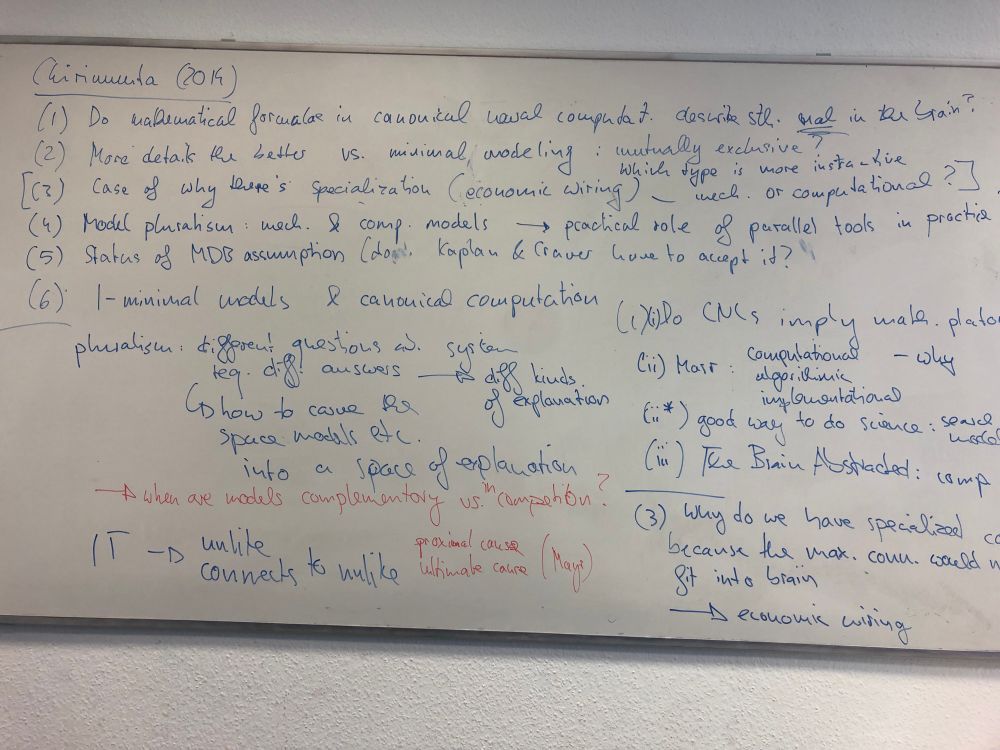
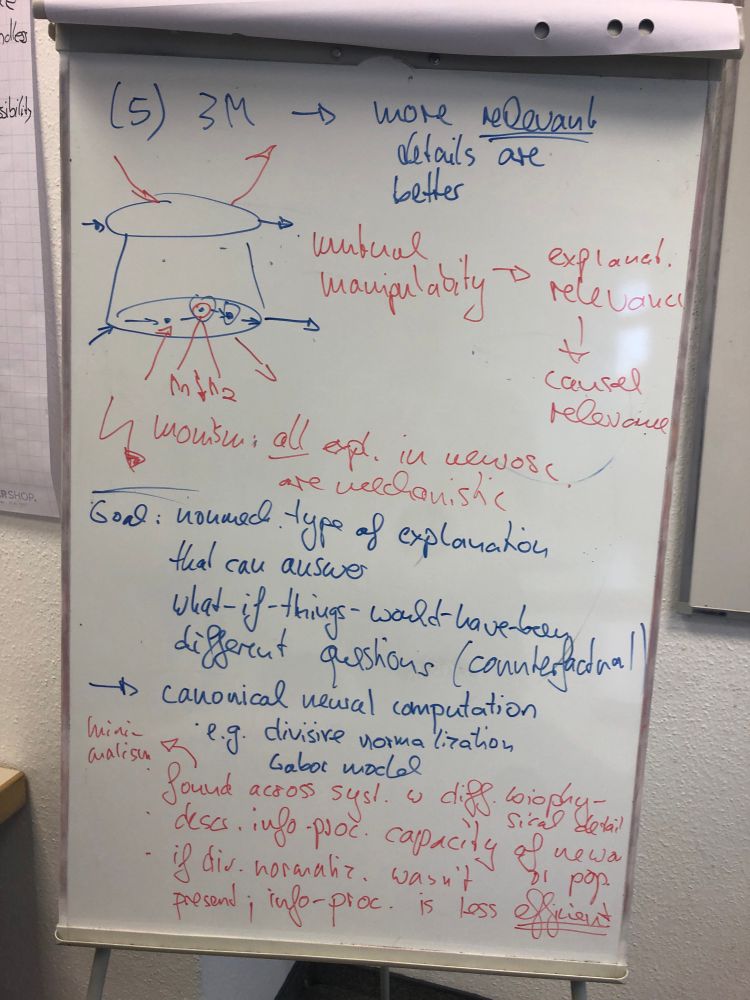
May 31, 2025 at 10:52 AM
Another gem from our Phil Neuroscience seminar: Mazviita Chirimuuta on canonical computations and explanation in neuroscience: link.springer.com/article/10.1...
We discussed what distinguishes mechanistic from minimal model explanations, how to identify neural details relevant to explanation (1/2)
We discussed what distinguishes mechanistic from minimal model explanations, how to identify neural details relevant to explanation (1/2)
Today I taught the paper on “memory transfer” by the great @davidcolaco.bsky.social in my class at @iphilluh.bsky.social . The was phil sci at its best: general conceptual work (what is a scientific phenomenon?) with a concrete historical case on interesting science, a normative angle 1/2
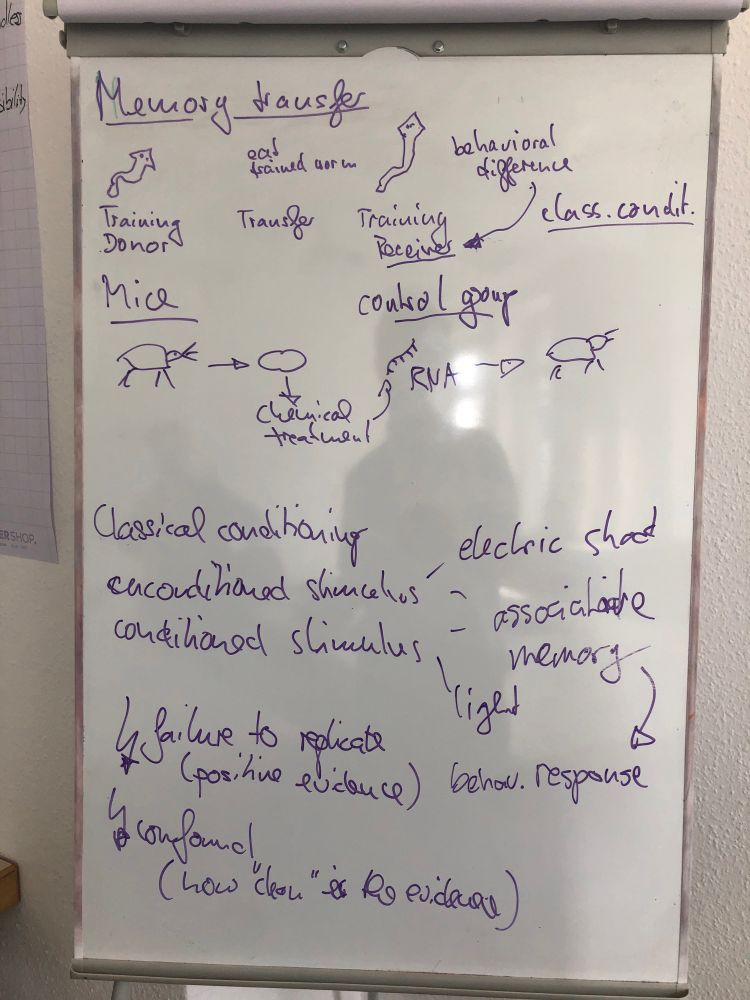
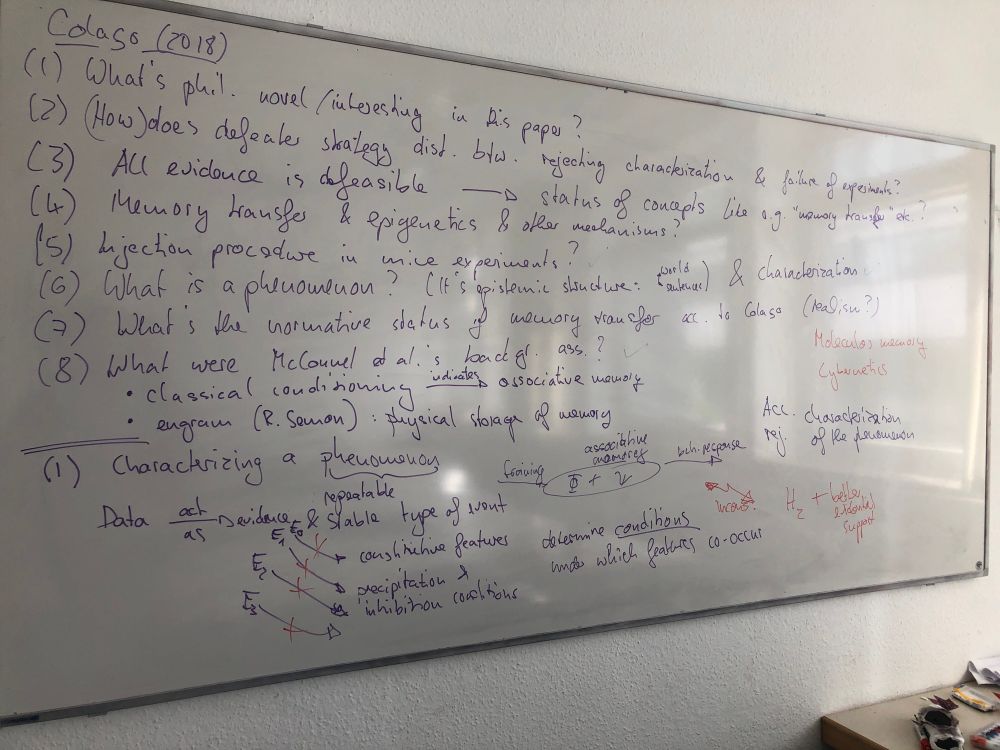
May 7, 2025 at 6:41 PM
Today I taught the paper on “memory transfer” by the great @davidcolaco.bsky.social in my class at @iphilluh.bsky.social . The was phil sci at its best: general conceptual work (what is a scientific phenomenon?) with a concrete historical case on interesting science, a normative angle 1/2
And closing today: keynote by Inkeri Koskinen on problems with measures to increase diversity in science , such as diversity washing and hijacking

March 27, 2025 at 3:04 PM
And closing today: keynote by Inkeri Koskinen on problems with measures to increase diversity in science , such as diversity washing and hijacking
Melinda Bonnie Fagan on particularism, a novel view of explanation that takes the radical diversity of explanatory styles in scientific practice as a starting point for philosophy of science, unity is achieved by patching together explanations from different meso-level communities.

March 27, 2025 at 3:02 PM
Melinda Bonnie Fagan on particularism, a novel view of explanation that takes the radical diversity of explanatory styles in scientific practice as a starting point for philosophy of science, unity is achieved by patching together explanations from different meso-level communities.
Sapna Kumar on the role of indigenous knowledge in the IPCC reports on climate change

March 27, 2025 at 1:11 PM
Sapna Kumar on the role of indigenous knowledge in the IPCC reports on climate change
Here is one of the workshop organizers, Anastasiia Lazutkina, talking about mainstream and alternative approaches to cosmological theories in physics

March 27, 2025 at 10:55 AM
Here is one of the workshop organizers, Anastasiia Lazutkina, talking about mainstream and alternative approaches to cosmological theories in physics
Fantastic talks so far at the epistemic diversity, pluralism and progress workshop in Wuppertal. Here @oscarw.bsky.social is talking about pluralism about philosophical views of scientific progress.

March 27, 2025 at 10:48 AM
Fantastic talks so far at the epistemic diversity, pluralism and progress workshop in Wuppertal. Here @oscarw.bsky.social is talking about pluralism about philosophical views of scientific progress.
Here’s are images from my GWP co-symposiasts Markus Kunze and Isabella-Sarto Jackson


March 25, 2025 at 3:05 PM
Here’s are images from my GWP co-symposiasts Markus Kunze and Isabella-Sarto Jackson
Earlier: Marina Dubova on how neuroscientists explore the brain and their assumptions in this process

November 16, 2024 at 5:08 PM
Earlier: Marina Dubova on how neuroscientists explore the brain and their assumptions in this process
Next up: @ufeest.bsky.social on normative challenges of exploratory research, and how psychologists conceptualize personality #PSA24

November 16, 2024 at 5:06 PM
Next up: @ufeest.bsky.social on normative challenges of exploratory research, and how psychologists conceptualize personality #PSA24
Next: @ufeest.bsky.social on the normative challenge of exploration, and how psychologists research multifaceted kinds like personality #PSA24

November 16, 2024 at 4:57 PM
Next: @ufeest.bsky.social on the normative challenge of exploration, and how psychologists research multifaceted kinds like personality #PSA24
Our symposium on exploratory research is in full swing! Currently speaking:
@jolienfrancken.bsky.social on new ways of building cognitive ontologies in neuroscience #PSA24
@jolienfrancken.bsky.social on new ways of building cognitive ontologies in neuroscience #PSA24

November 16, 2024 at 4:31 PM
Our symposium on exploratory research is in full swing! Currently speaking:
@jolienfrancken.bsky.social on new ways of building cognitive ontologies in neuroscience #PSA24
@jolienfrancken.bsky.social on new ways of building cognitive ontologies in neuroscience #PSA24
Joeri Witteven on the performative effects of downlisting threatened species (e.g. snow leopard) whose continuation depends on our conservation practices #PSA24

November 14, 2024 at 5:02 PM
Joeri Witteven on the performative effects of downlisting threatened species (e.g. snow leopard) whose continuation depends on our conservation practices #PSA24







